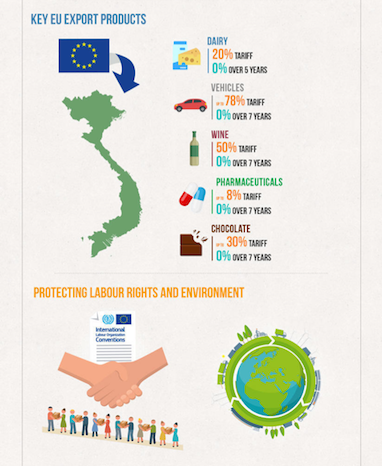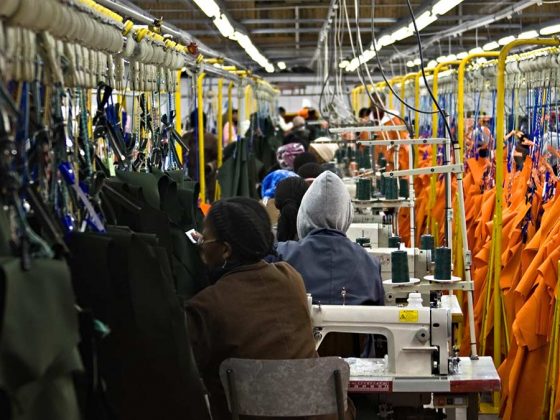On Sunday, 30 June 2019, EU member states and Vietnam signed the EU-Vietnam Free Trade Agreement (EVFTA) and the EU-Vietnam Investment Protection Agreement (EVIPA). The first of their kind with a developing country, the agreements were a stepping stone in Vietnam’s dynamic approach toward its integration in global value chains. For the EU, the agreements serve to strengthen the bloc’s trade and investment partnership with Vietnam and, more broadly, the Association of Southeast Asian Nations (ASEAN).
Vietnam is the EU’s second largest trading partner in ASEAN after Singapore, with trade in goods worth almost EUR 50 billion (USD 56 billion) and trade in services worth EUR 4 billion (USD 4.5 billion) in 2018.
Why It is Important
The EVFTA is the most ambitious free trade deal the EU has ever concluded with a developing country. It will eventually eliminate 99% of the customs duties between EU member states and Vietnam. Notably, 65% of duties on EU exports to Vietnam will be lifted as soon as the EVFTA enters into force, while the remainder will be gradually phased out over a period of up to 10 years. For Vietnamese exports to the EU, 71% of duties will be eliminated immediately, and the remainder will be phased out over a period of up to 7 years.
Opportunities for Investment and Doing Business in Vietnam
The agreements have been enthusiastically welcomed by the business communities of both parties. A 2018 survey by the European Chamber of Commerce in Vietnam shows that 80% of surveyed European businesses believe that the EVFTA is very likely to enhance Vietnam’s competitiveness compared to other countries such as China, Japan, South Korea and the United States.
Ultimately, EU businesses can expect to benefit from a level playing field and a more predictable legal framework if they plan to invest in Vietnam. The European Parliament emphasizes fair and sustainable trading practices when drafting trade deals with its partners, and Vietnam is no exception. The bloc has paid close attention to Vietnam’s human rights improvements, including its reform of the Labour Code, its protections for intellectual property rights, and its increasing political freedoms. The trade agreements now offer the Vietnamese government a strong incentive to continue enhancing its regulatory framework. Project approvals need to be streamlined and red tape eliminated.
The EVFTA also establishes non-discrimination between Vietnamese state-owned enterprises (“SOE”) and EU companies. EU companies will be able to bid for public contracts in the infrastructure, power generation, transportation, and healthcare sectors on an equal footing with Vietnamese SOEs. As of October 2017, Vietnam had around 600,000 SOEs that accounted for 40% of the country’s GDP and used 51% of the labor force. These companies are typically given easy access to land and capital, and face little challenge in public contract bidding. Vietnam’s public institutions will also benefit from increasing access to goods and services with better quality and prices ratios.




